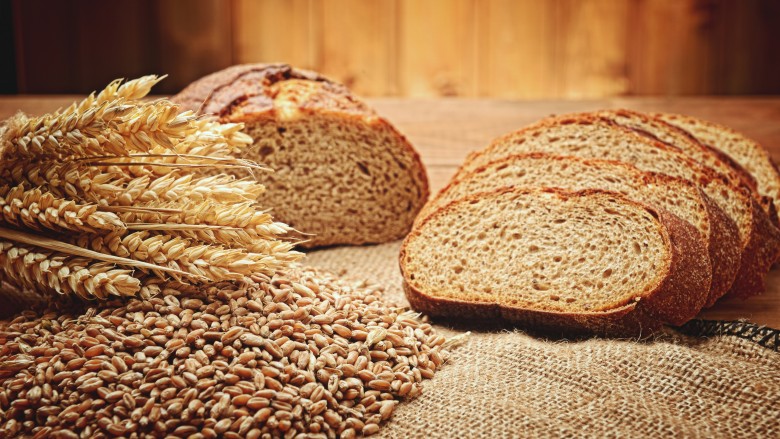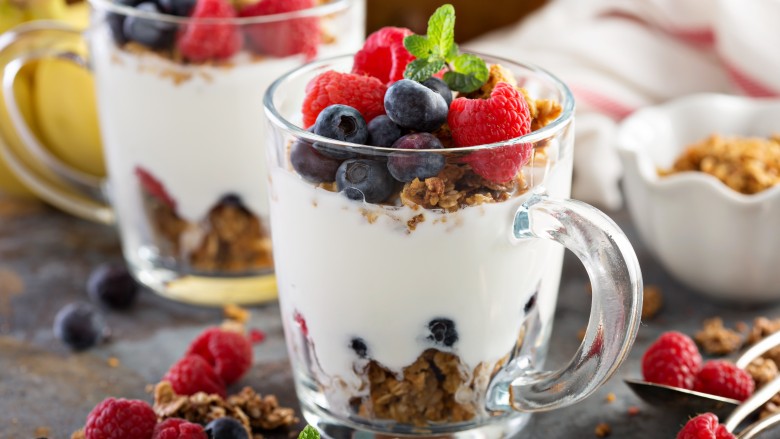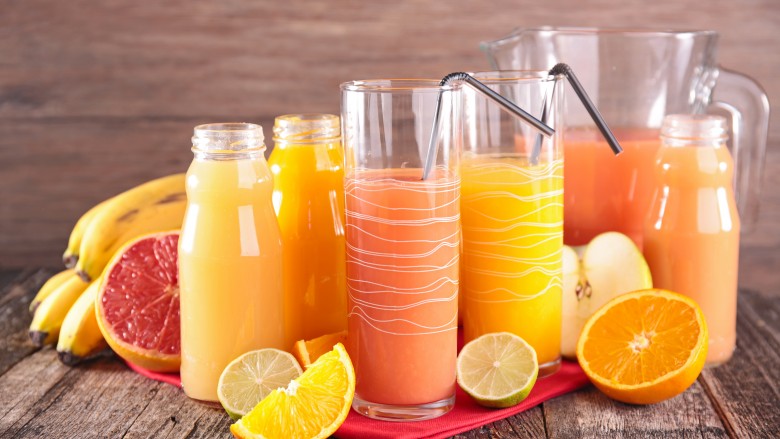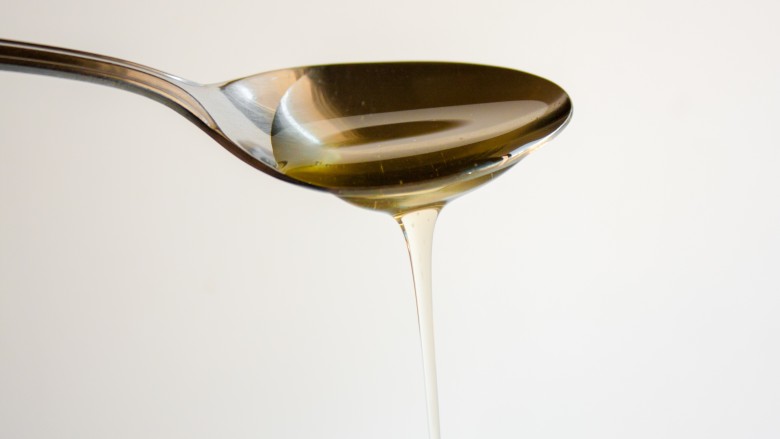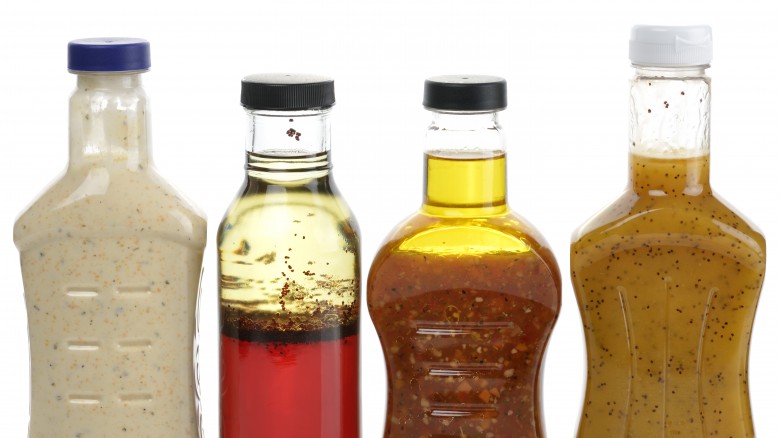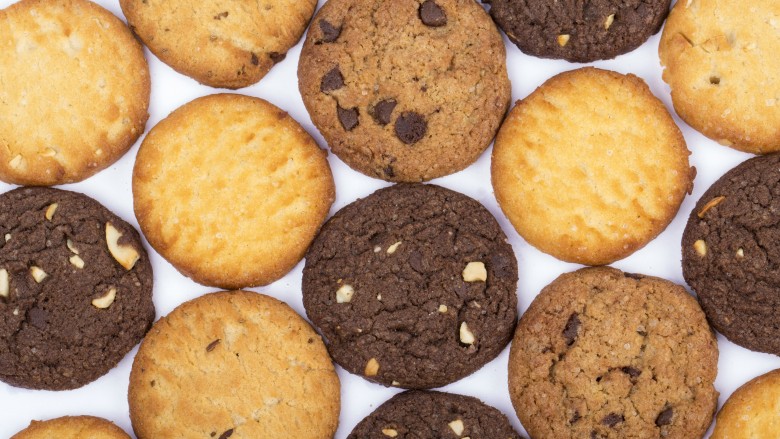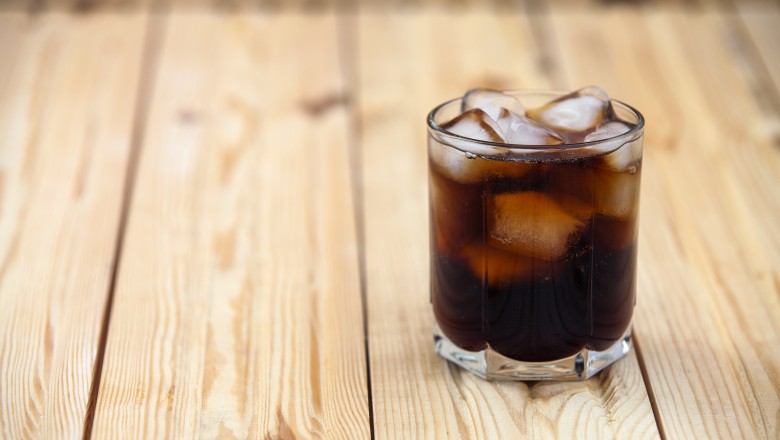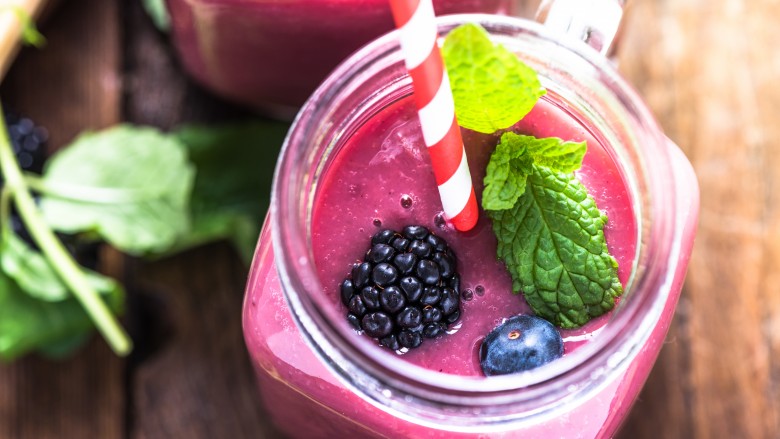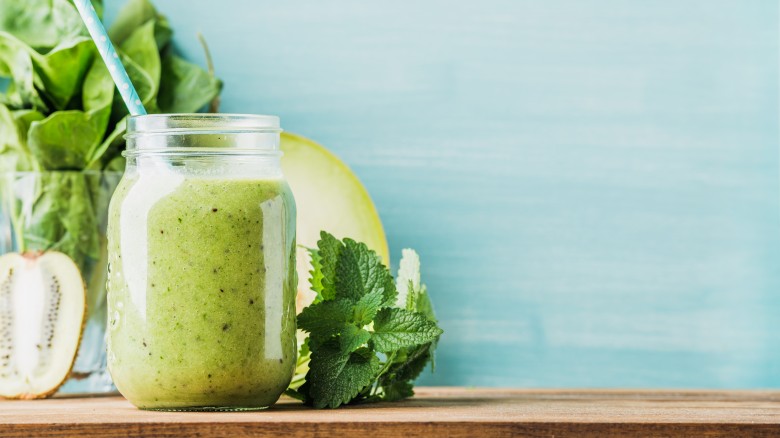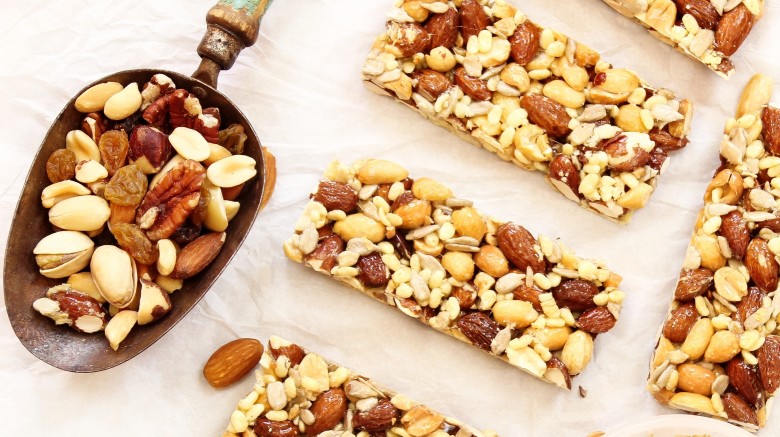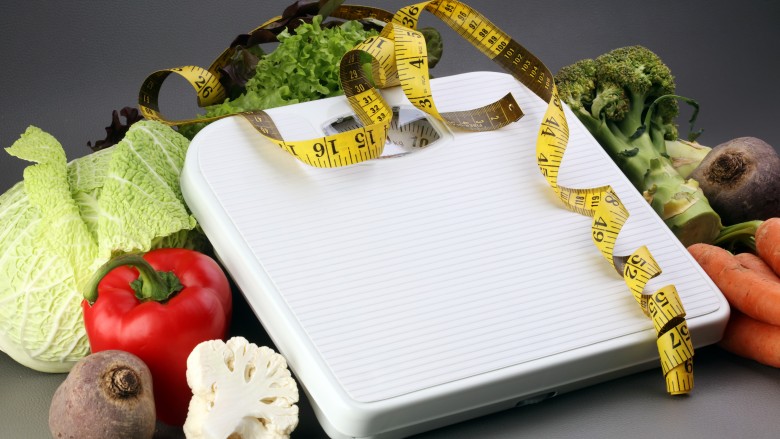Foods That Sabotage Your Diet
When you're trying to lose a few pounds or just clean up your diet, it can feel like there are temptations everywhere you look. Doughnuts at the office, cake at the birthday party, and that adorable Girl Scout peddling cookies on your doorstep all threaten to throw you off track. However, these temptations are not the only dangerous ones.
There are much sneakier culprits lurking right in your kitchen. The problem is that you think some of these foods are healthy. Foods that parade themselves as health foods only to send your blood sugar skyrocketing are the real issue. Here are just a few of the foods that will sabotage your diet.
Whole wheat bread
Ordering your sandwich on whole wheat bread instead of white feels like the healthy choice, but you really need to read the labels. Many whole wheat varieties contain just enough grains to be considered "whole grain," but have almost no nutrition left.
"Whole wheat products can sabotage weight loss goals," Jackie Arnett Elnahar, a registered dietitian, told me. "Although whole wheat sounds healthy, you should make sure that you are buying a whole wheat item that has at least three grams of fiber."
Flavored yogurts
The women in those flavored yogurt commercials always look like they're having so much fun. Look, I'm having key lime pie for dessert! However, she would probably be better off just having a bite of the real thing. "Flavored yogurts look and market themselves as healthy, but many flavored yogurts have additives, starch, and high fructose corn syrup," Arnett told me. "This all leads to excess sugar with some yogurts having more 15 grams of sugar! Parfaits can also be culprits especially when non fresh fruit is used."
Many yogurt brands tell you about their high protein and probiotic content, but that might not be worth it. "Most yogurt brands contain very high amounts of sugar," Scott Michael Schreiber, a chiropractic physician, acupuncturist, and nutritionist told me. "Many consume yogurt for the beneficial bacteria found within it. However, in many instances, the bacteria is dead and the amount of sugar far outweighs any benefit."
Rebecca Lewis, in-house dietitian at HelloFresh agreed. "If you do enjoy yogurt, opt for a non-flavored one that has less than 12 grams of sugar per serving," she recommended. "Instead add the sweetness from fresh fruits you choose yourself! Bonus, Greek yogurt is about two times higher in protein and often half the sugar of regular yogurt." Arnett also recommended buying plain yogurt and adding the flavor yourself. "Making your own parfaits at home with unflavored Greek yogurt, unsweetened granola, and fresh fruit is best," she shared with me.
Fruit juice
Your morning orange juice may be worse for you than the bacon and eggs. Juice is essentially straight sugar going right into our bloodstreams. "Fruit juice is another 'healthy' item that contains a ton of fructose," Dr. Schreiber told me. "Since all the fiber has been removed, there is no protection against rapidly rising blood sugar."
I've always known to stay away from the fruit juices on the grocery store shelves, but I thought that buying a juicer would surely be a healthier choice. Not so according to weight loss coach and Registered Dietitian Bonnie Klauber. "When we juice fruits and vegetables, we lose the fiber and many vitamins and minerals that provide health benefits and keep us full. Liquids tend to digest quickly, meaning that we get hungry again soon," Klauber told me." Instead of drinking orange juice, eat the whole orange instead!"
HelloFresh Dietitian Lewis also explained that even a small amount of fruit juice can be too much. "Even with a 100 percent fruit juice, what you end up consuming is a high-calorie and high-sugar drink, even with small four-ounce portions," said Lewis. "Instead, opt for water and eat a piece of fruit or blend the fruit into a smoothie you make yourself!"
Agave nectar
Agave nectar certainly sounds healthier than sugar. Go ahead and eat five of these whole wheat, agave nectar, cacao nib cookies. They're healthy! However, it seems like agave is just sugar by another name.
"Agave is marketed as a healthy alternative to sugar. However, agave nectar is so highly processed that it can actually end up being worse for you than table sugar," Dr. Schreiber said. "It is almost completely devoid of all nutrients, and in some cases is composed of 90 percent fructose. Most high fructose corn syrup is between 50 and 60 percent."
Yikes! Rather than bingeing on "healthy" desserts, go for a few bites of the real thing. You'll be more satisfied and your body will actually be able to process that fuel.
Salad dressing
Nothing screams, "I'm on a diet," more than ordering a salad at dinner. While everyone else is indulging in cheeseburgers and pizza, you're rolling that cherry tomato around with your fork, willing it to turn into a mozzarella stick. However, the salad dressing may be just as bad for you as whatever your friends are having.
"As a nutritionist, I often find salad dressings are sabotaging many weight loss efforts," Millie Shedorick, a registered dietitian, told me. "Only two tablespoons of most regular dressings contain approximately 200 calories of just fat. Many salads contain more than two tablespoons of dressing, adding an extra 200 calories or more."
So what if you really do love salads? You can still have what you want, but just be smart about how you order it. "When ordering salads or sandwiches, always ask for 'no dressing' or to serve it on the side so you are aware of what you are adding," recommended Shedorick. "You can squeeze a lemon on your salad or use vinegar for no added calories, or try a low fat dressing for half the calories."
Peanut butter
I adore peanut butter. I start most mornings by stirring a heaping spoonful of it into my oatmeal. I need the protein, right? Well after doing a little research, I may start measuring my spoonful.
"One tablespoon is 100 calories, which barely covers a half of an English muffin. A peanut butter and jelly sandwich contains approximately four tablespoons or 400 calories just for the peanut butter," Shedorick told me. "Many people are eating it right out of the jar or putting it on celery for a healthy snack and do not realize how many calories they are quickly adding. Instead, dip celery in low-fat dressing or measure one tablespoon of peanut butter and enjoy."
Warning: I've actually measured one tablespoon of peanut butter. You're going to be sorely disappointed.
Nuts
Nuts are a great snack for anyone trying to eat healthier. They're high in protein, which keeps you full, while also being incredibly easy to grab on the go. However, they are calorie-dense, so it is important to pay attention to portions.
"Nuts and trail mixes are super healthy, but people are eating too much," explained Shedorick. "A quarter of a cup of nuts is about 200 calories. Many people are grabbing handfuls throughout the day or sitting with the jar."
To make sure you're not inadvertently eating multiple servings in one sitting, try pre-packing your snacks for the day. "Pre-portion nuts in a ziplock bag with a one-fourth cup measuring cup, or buy pre-portioned packages so you know when you are done," recommended Shedorick.
Low-fat foods
When it comes to processed foods, if they sound too good to be true, they probably are. There is just something wrong about fat-free cookies. They need the fat for the richness and texture. So if the fat has been removed, what replaced it?
"While the fat may be reduced or taken out, sugar and sodium are often added in to maintain flavor! Be wary of low-fat foods when one of the first three ingredients listed is sugar," warned Lewis. "Regularly eating too much sugar in your diet could lead to a higher than normal level of insulin in your blood, and in the long term, this will interfere with proper hormone signaling in the brain, including signaling of our hunger hormones!"
So eating those unsatisfying fat-free cookies could actually make you feel hungrier.
Zero-calorie sweeteners
Another too-good-to-be-true offender is zero-calorie sweeteners. Sugar contains calories, so how could a snack or drink taste sweet, but have no calories? Something is not right.
"While they are generally regarded as safe, they are synthetic and unnatural, have unknown negative health consequences, and are much sweeter than natural sugar, making other foods seem less sweet by comparison," explained Lewis. "Instead, use real sugar, but in moderation. Remember the recommendations are for no more than 48 grams or 12 teaspoons per day!"
Having a diet soda may seem healthier than the regular one, but if the sweetener makes you crave more sugar in the long-run, it's not worth it.
Store-bought smoothies
As you're passing through the mall food court, smelling buttery soft pretzels and loaded pizza slices, a smoothie probably sounds like the best choice. However, that smoothie may just be a sugar bomb in disguise.
"Smoothies are usually loaded [with] way too much fruit, sending our blood glucose levels skyrocketing, which can damage our blood vessels in the long run," Registered Dietician Tracy Lockwood told me. "Some smoothie bars add six servings of fruit to make a 12-ounce smoothie, yikes!"
Lockwood recommends creating your own at home. Start with a vegetable, such as kale, spinach, carrots, or beets. Then add some protein to keep your blood sugar level stable. Some good protein sources include nuts, nut butter, or flaxseed. The go ahead and add a cup of fruit.
Green smoothies
Green smoothies are especially tricky. We often assume they are healthy purely because of their color. "While yes, they are packed with tons of fruits and veggies, most brands that are on the marketplace are packed with sugar, because they are using about five to six servings of fruit. We don't necessarily need that much, and [the smoothies] only contain a few pieces of kale or spinach for the green color," Certified Personal Trainer and Precision nutrition coach Allison Tibbs told me. "I tell my clients to look at the labels or ingredients, the greens should be the first few ingredients with the fruits last. This means that there are more greens and veggies in the smoothies rather being fruit packed."
Even if your green smoothie is loaded with real spinach or kale, it can still contain a large amount of calories. "The problem with them is it they go down quick, can be packed with calories, and they don't offer any of the same level of fullness and satiety you get from chewing whole fruits and veggies," Andy De Santis, RD, MPH told me.
Tomorrow morning instead of whipping up a smoothie on the run, sit down and chew your food. You'll probably feel more satisfied and may even end up eating less throughout the day.
Protein bars
Granola and protein bars can very quickly undo all of your hard work at the gym. They can be very high in sugar and calories, even if the package looks healthy.
"I am a big believer of clean eating, and there are a lot of bars that are on the shelves making a bunch of claims, but they contain artificial sugars and flavors and tons of preservatives," said Tibbs. "I typically tell my clients to choose Kind Bars, mainly because they are lower in sugar and contain ingredients that you can pronounce and know what they are." Always read those labels before throwing one in your grocery cart.
Low-calorie snacks
You know those little 100-calorie snack packs? They always disappoint, don't they? Tiny amounts of stale cookies may only contain 100 calories, but they are sure not going to satisfy your sweet tooth. They may also make you eat more later.
"Low-calorie snacks are generally made from refined sugar or grain, which take on a whole different value when being digested," Director of Nutrition at Nava Health & Vitality Center Ana Goldseker told me. "You want to pay more attention to the ingredients than the 100-calorie count. If a snack is made from refined ingredients, then you will not actually experience weight loss."
Next time you're grocery shopping, spend some time reading food labels. Ideally, you should be able to pronounce everything that you're about to eat. "Losing weight is more about reducing inflammation and imbalance than calories," explained Goldseker. "Refined snacks only make you crave sweets an hour after eating, so it's much better to grab an apple or a banana instead."
Don't restrict calories
While it is important to read labels and pay attention to what you are putting into your body, do not restrict yourself too much. When you don't eat enough calories, you only end up slowing down your metabolism and feeling unsatisfied.
"In general, women shouldn't eat less than 1,200 calories and men less than 1,500 calories a day, and even these levels are pretty tight," Registered Dietitian at the Baylor College of Medicine Roberta Anding told Everyday Health. Eat your favorite foods in moderation, and cut yourself some slack!

